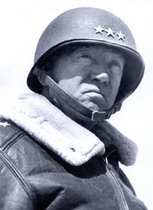2nd Amendment and the Supreme Court
This statement on ACLU policy just makes me sick. Attorney's should know better. And something tells me, they do.
ACLU POLICY
"The ACLU agrees with the Supreme Court's long-standing interpretation of the Second Amendment [as set forth in the 1939 case, U.S. v. Miller] that the individual's right to bear arms applies only to the preservation or efficiency of a well-regulated militia. Except for lawful police and military purposes, the possession of weapons by individuals is not constitutionally protected. Therefore, there is no constitutional impediment to the regulation of firearms." --Policy #47
Unfortunately, that is not what U.S. v. Miller said.
As a matter of fact, the Senate's 1982 "Right to Keep and Bear Arms Report" provides the contrary evidence.
According to the case law appendix, the Miller decision said:
a court cannot take judicial notice that a short-barrelled shotgun is covered by the second amendment — but the Court did not indicate that National Guard status is in any way required for protection by that amendment, and indeed defined "militia" to include all citizens able to bear arms.
As I write this blog, it is Dr. Martin Luther King, Jr.'s birthday. I think of the civil rights and dignity he stood for, and I find it interesting that the Senate report had this to say in regards to the terrible Dred Scott decision:
The United States Supreme Court has only three times commented upon the meaning of the second amendment to our constitution. The first comment, in Dred Scott, indicated strongly that the right to keep and bear arms was an individual right; the Court noted that, were it to hold blacks to be entitled to equality of citizenship, they would be entitled to keep and carry arms wherever they went.
As a side note, let's not forget that the government has a history of denying rights to people. The Dred Scott case highlights the need for people to be armed in order to ensure their rights are not infringed upon. The government could enforce slavery and terrible treatment as long as Blacks were unarmed.
The second decision was the U.S. v. Miller, already mentioned earlier.
In the third case, Lewis v. United States, "(a footnote) indicated only that 'these legislative restrictions on the use of firearms' — a ban on possession by felons — were permissable [sic]. But since felons may constitutionally be deprived of many of the rights of citizens, including that of voting, this dicta reveals little."
There is no question, from Supreme Court interpretation, that the 2nd Amendment provides a right to individual ownership of guns.
Tags: Guns , 2nd amendment , Bill of Rights , Supreme Court





|